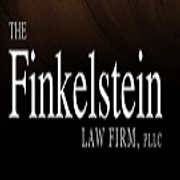
When you take out an insurance policy, you expect the insurer to provide coverage according to the terms of your policy. To ensure these terms are met, insurance companies go through specific steps to determine the validity and assess the value of a claim in a timely fashion. In some instances, providers may not fulfill these responsibilities. This is known as insurance bad faith, which can give the policyholder a reason to file suit against the insurer and seek damages. Here’s a closer look at bad faith and how a lawyer can help if you’re affected by this aspect of insurance law during a personal injury case.
What Role Do Insurance Companies Play in Personal Injury Claims?
If another party is liable for your personal injury, they can use their insurance coverage to pay for damages you experience because of the accident, such as medical costs, pain and suffering, and disability.
When you file a personal injury claim, an adjuster from the insurance company will review various details regarding your accident, such as medical records, police reports, and surveillance footage. From this evidence, they'll determine if your claim is valid and how much to pay out.
What Are the Different Types of Bad Faith?
First-Party

First-party bad faith is when a policyholder’s claim is not covered by an insurer when it should be. Typically, this may occur if the insurance company failed to investigate in a timely manner, manipulated evidence, or did not conduct a thorough investigation.
Third-Party
Third-party bad faith occurs when an insurance company does not rightfully cover damages they should pay out to an affected third party. For example, if a policyholder was liable for another party’s injuries and the insurance party refused to pay out despite reasonable evidence, they may have a solid foundation for third-party bad faith.
What Damages Can Be Sought in a Bad Faith Case?
If the settlement offered by the insurer is inadequate, a personal injury lawyer can appeal for a higher amount by negotiating out of court or filing suit in court. If an insurer is found to be acting in bad faith, the court may order them to pay damages to the injured party beyond the original policy limits. Common damages include economic losses incurred due to bad faith, emotional distress, legal fees, and punitive damages.
When you need a lawyer to represent your personal injury case, consult The Finkelstein Law Firm in Goshen, NY, for comprehensive assistance. These personal injury lawyers help clients seek compensation that they are rightfully owed due to another party’s negligence, such as after an auto accident. The attorneys are also well-versed in insurance law and will take legal action against insurers that have acted in bad faith. Learn more about their services online, or call (845) 294-9003 to schedule a consultation.
About the Business
Have a question? Ask the experts!
Send your question

